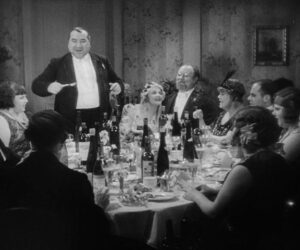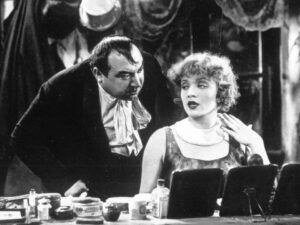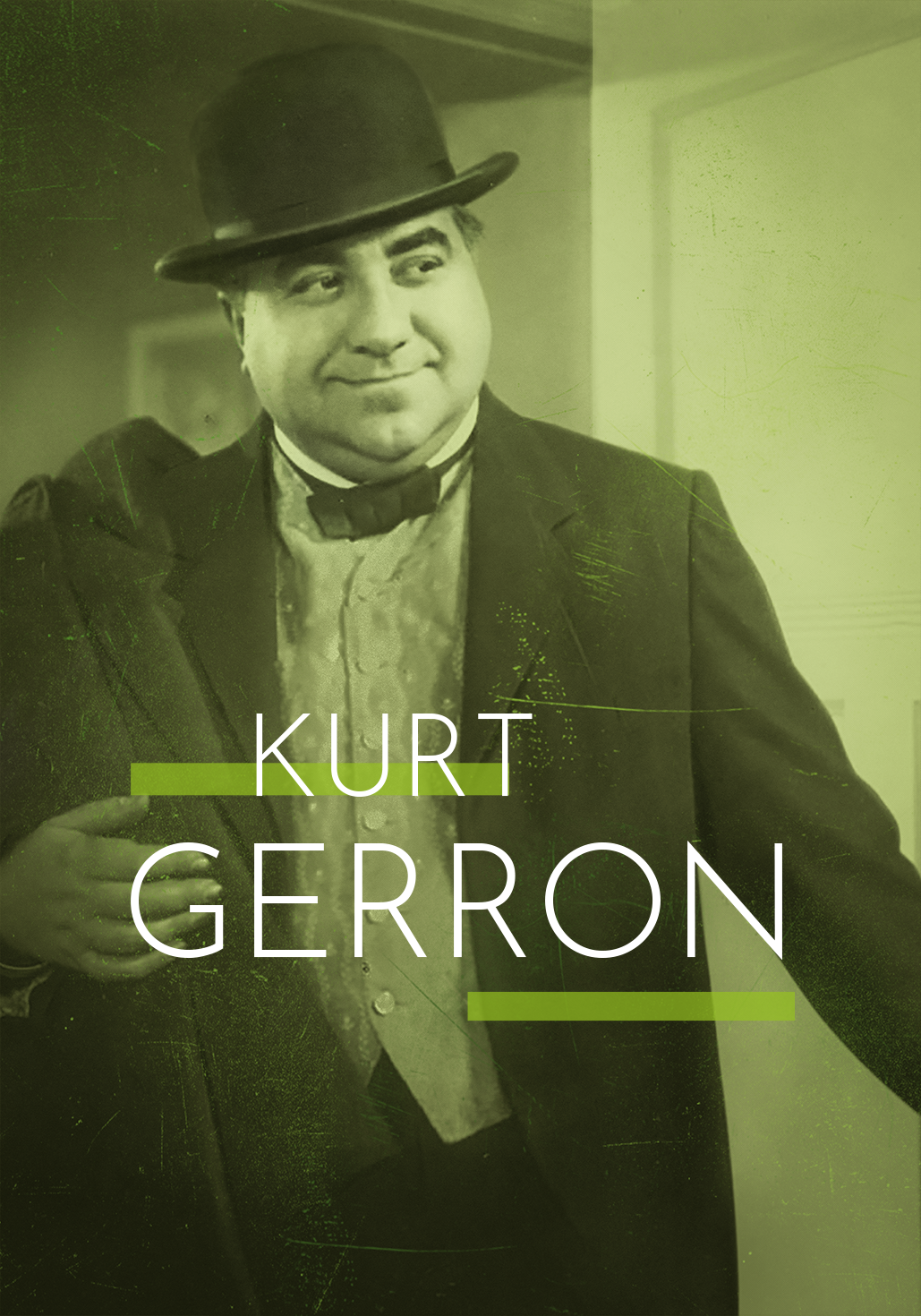11 V 1897, Berlin — 28 X 1944, KL Auschwitz-Birkenau
Biography
Kurt Gerron was a well-known actor and director in pre-war Germany. In Theresienstadt (the ghetto in Terezín), he was ordered to make a documentary that would show the world “humane conditions Jews were enjoying in their new settlement area”.
Born on 11 May 1897 in Berlin, Kurt Gerron (Gerson) began medical studies when World War I interfered. He was injured at the front, but began working as a doctor in a field hospital. Once the war ended, he tried to continue his medical career, but his interests had changed in 1920.
He made his début in a cabaret, and shortly thereafter went on to act on stage as the first “Mack the Knife” in Bertold Brecht’s Three penny Opera. At the same time, he took supporting roles in silent movies and soon he also began getting roles in sound films. He is best remembered as the magician Kiepert in Der blaue Engel (‘The Blue Angel’), a 1930 film directed by Josef von Sternberg, in which Gerron appeared alongside Marlene Dietrich. He was also a critically acclaimed director.
When the Nazis took power in Germany, he first left for France and then for the Netherlands, where he continued his artistic career. However, it was cut short when the German army reached the Netherlands. Gerron still continued to organize a cabaret in the Westerbork camp where he was interned. This continued after his transport to the Terezín Ghetto (Theresienstadt). He appeared in the cabaret Karussell (‘Carousel’), where he attempted to give the prisoners a glimpse of their former, lost, lives.
In 1944, he was forced by the Nazis to make the propaganda film about the Theresienstadt Ghetto titled: Theresienstadt Ein Dokumentarfilm aus dem jüdischen Siedlungsgebiet (‘Theresienstadt: A Documentary Film on the Jewish Resettlement’), later known as Der Führer schenkt den Juden eine Stadt (‘The Führer Gives the Jews a City’). The film was supposed to convince the international public opinion that the conditions in the camps were “humane”. Kurt Gerron never finished the film; only some of the footage survived. Once the shooting was finished, Kurt Gerron, his wife, and other artists, were all sent to the Auschwitz-Birkenau concentration camp. He died in the gas chamber.
Kurt Gerron was a well-known actor and director in pre-war Germany. In Theresienstadt (the ghetto in Terezín), he was ordered to make a documentary that would show the world “humane conditions Jews were enjoying in their new settlement area”.
Born on 11 May 1897 in Berlin, Kurt Gerron (Gerson) began medical studies when World War I interfered. He was injured at the front, but began working as a doctor in a field hospital. Once the war ended, he tried to continue his medical career, but his interests had changed in 1920.
He made his début in a cabaret, and shortly thereafter went on to act on stage as the first “Mack the Knife” in Bertold Brecht’s Three penny Opera. At the same time, he took supporting roles in silent movies and soon he also began getting roles in sound films. He is best remembered as the magician Kiepert in Der blaue Engel (‘The Blue Angel’), a 1930 film directed by Josef von Sternberg, in which Gerron appeared alongside Marlene Dietrich. He was also a critically acclaimed director.
When the Nazis took power in Germany, he first left for France and then for the Netherlands, where he continued his artistic career. However, it was cut short when the German army reached the Netherlands. Gerron still continued to organize a cabaret in the Westerbork camp where he was interned. This continued after his transport to the Terezín Ghetto (Theresienstadt). He appeared in the cabaret Karussell (‘Carousel’), where he attempted to give the prisoners a glimpse of their former, lost, lives.
In 1944, he was forced by the Nazis to make the propaganda film about the Theresienstadt Ghetto titled: Theresienstadt Ein Dokumentarfilm aus dem jüdischen Siedlungsgebiet (‘Theresienstadt: A Documentary Film on the Jewish Resettlement’), later known as Der Führer schenkt den Juden eine Stadt (‘The Führer Gives the Jews a City’). The film was supposed to convince the international public opinion that the conditions in the camps were “humane”. Kurt Gerron never finished the film; only some of the footage survived. Once the shooting was finished, Kurt Gerron, his wife, and other artists, were all sent to the Auschwitz-Birkenau concentration camp. He died in the gas chamber.
—
Theresienstadt. A documentary from the Jewish Settlement Area („Theresienstadt. Ein Dokumentarfilm aus dem jüdischen Siedlungsgebiet”)
A propaganda film that Kurt Gerron was forced to shoot in Theresienstadt. The film was later known as The Führer gifts a town to the Jews („Der Führer schenkt den Juden eine Stadt”). It was supposed to show the „humanitarian conditions” in Theresienstadt ghetto.
Stills from Josef von Sternberg’s „The Blue Angel” film where Kurt Gerron starred with, among others, Marlene Dietrich:



